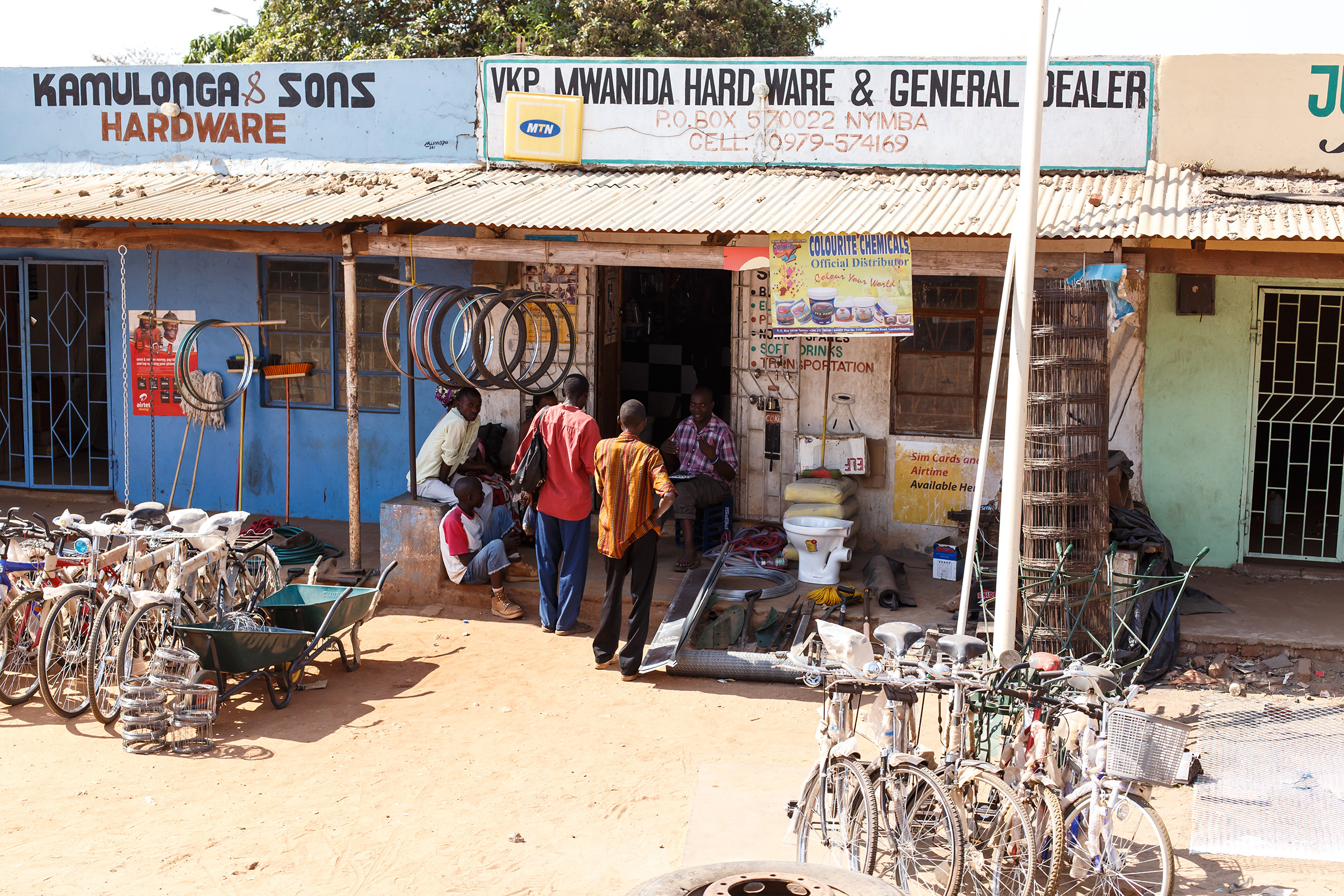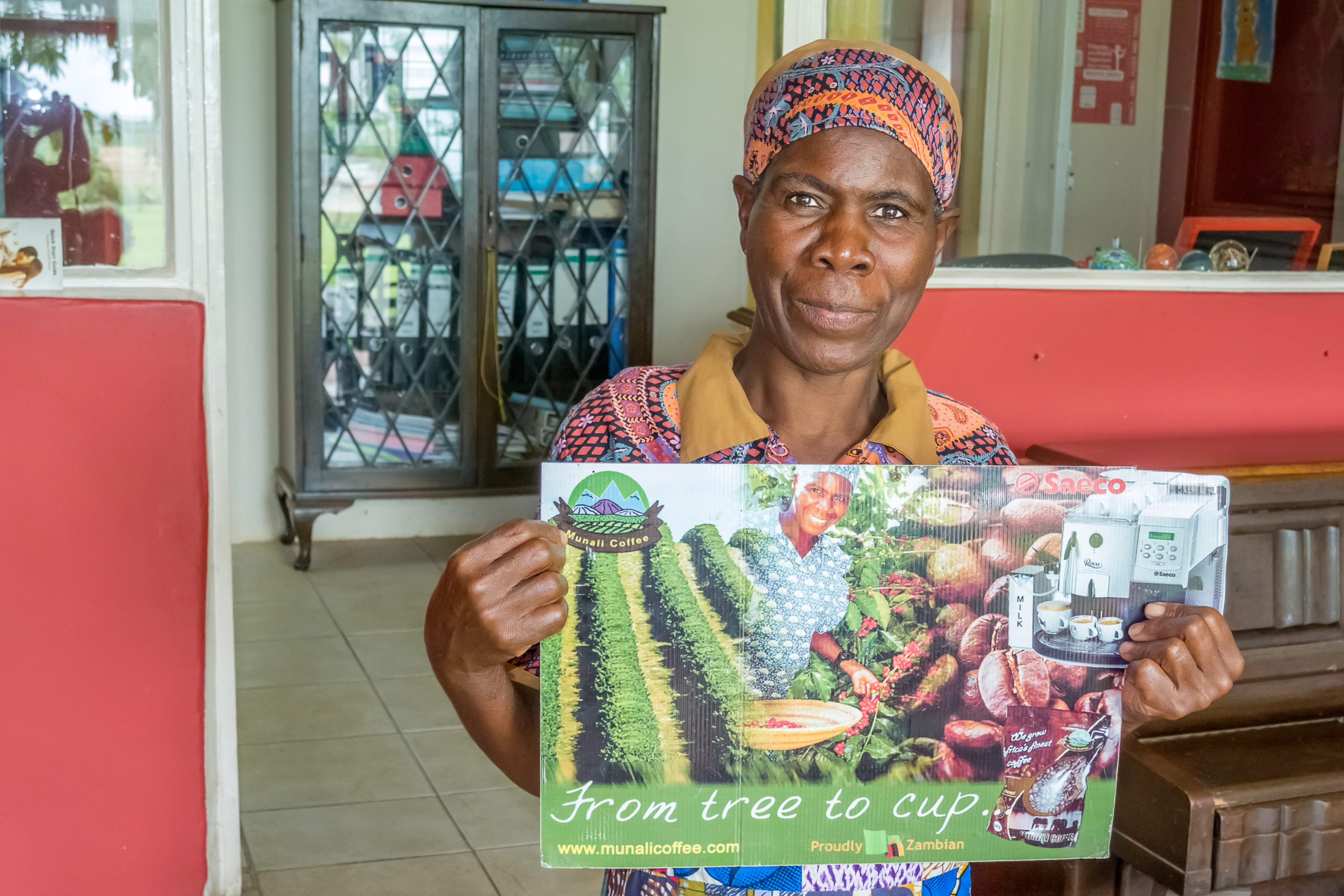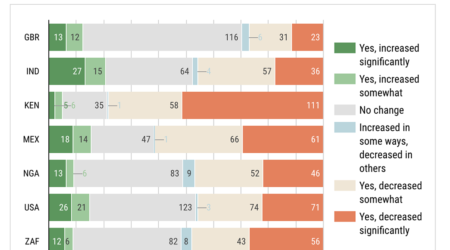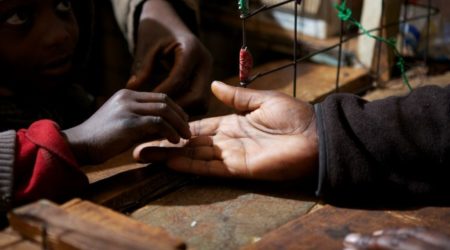Zambian micro- and small enterprises during COVID-19: Wave One Findings

Zambia recorded its first case of COVID-19 on March 18 and took early action to contain the spread. As of July 22, there were 3,583 confirmed cases, about half of whom had recovered, and 128 deaths. In response to the crisis, restrictions were imposed on public gatherings, schools and universities were closed including restaurants and bars, and there was a temporary lockdown of some towns [1]. Even though many of the restrictions have been eased or lifted altogether, social distancing and operational guidelines remain. As a result of the economic slowdown, disruptions to international trade and depreciation of the kwacha and with all these linked to COVID-19 pandemic, the International Monetary Fund (IMF) has projected a GDP growth of -3.5% for Zambia in 2020, compared to between positive 2 and 3% in the last five years. In fact, the last time Zambia experienced negative GDP growth was over 20 years ago.
The lowest income segments are particularly vulnerable to the economic impacts of the coronavirus pandemic and the resulting economic slowdown. To better understand the effects of the crisis, FSD Zambia and BFA Global teamed up to conduct a rapid online “dipstick” survey of Micro and Small Enterprises (MSEs), a backbone of Zambia’s economy. This research augments FSD Zambia’s active engagement in its response to the COVID-19 crisis and replicates a methodology BFA Global has leveraged over multiple waves to gain deep insights into 10 countries since the beginning of the pandemic.
This blog reports the findings from the first wave of surveys, where 170 self-employed individuals, merchants, and other micro- and small entrepreneurs were polled between June 11th and 17th. Thirty-three percent of the respondents were female, and 67%, male. More than half were less than 30 years of age, mostly hailing from urban areas (71%), and the rest from periurban (28%) and rural (8%) locations. About half of them (52%) see their entrepreneurial venture as a growing business, while the rest (48%) see it as a source of income sufficient to take care of oneself and one’s family.
MSEs face significant revenue, working capital, credit and supply chain challenges
We find that the adverse effect of the crisis on MSEs is significant. Sixty-nine percent of respondents reported a decrease in business revenue generation since the beginning of the coronavirus outbreak; while 39% of respondents saw a significant decrease, another 30% noted some decline in revenue. Compared to women respondents (32%), a higher portion of men (42%) reported a significant decrease in revenues. The predominant reason for a fall in revenue was a decline in demand (71%), followed by supply chain issues (15%). Interestingly, about 14% saw an increase in revenue – these were mostly businesses that dealt with essential goods and services, delivery of foods and household goods, and security.
To cope up with the decreasing revenues, a majority (74%) reduced production or services. In particular, more younger merchants (77%) had to cut their production or services than 31 years or older (64%). In the overall sample, only 25% of respondents consider business revenue to be sufficient to sustain their desired level of production or service.
Access to working capital, by far, was the most cited requirement (71%) for businesses to grow and mitigate the adverse effects of the crisis. Those who consider their business as an income source are more likely to identify working capital as the primary constraint (77%), compared to those who see it as an entrepreneurial venture (66%). According to respondents, the least necessary requirement thus far is access to qualified workers and digital literacy skills.
Despite the need for working capital, 73% of respondents have been unsuccessful in raising funds for their businesses to manage the crisis. A significant number of respondents (61%) have already tapped into their own savings for additional sources of funding, followed by another 36% who have approached family and friends for a loan. Moneylenders are a distant third source (13%), followed by banks (7%).
For MSE merchants with a growth orientation, price spikes were their biggest concern (49%). In contrast, canceled orders (28%) and delays (23%) were reported as the main significant pain-points for merchants running businesses as their primary income source.
Less than half (35%) of the respondents had at least one business loan. Amongst those with a loan, younger respondents (31%) were much less likely to have one compared to older counterparts (46%). More than half of such respondents also claimed to be at least 30 days late on a loan repayment this year, with 50% very likely to default, and 22% somewhat likely. More women (66%) than men (44%) reported very likely to be late in making their loan repayments.
Most MSEs foresee continuing as a going concern and are optimistic about recovery
Attitudes and perceptions play an important role in how one responds to a crisis. We generally find respondents to be stressed, but also hopeful. Seventy-six percent of respondents agreed to the fact that their businesses were under significant stress due to finances associated with running the business. Likewise, 79% found financial concerns to be the most significant constraint in making business decisions.
When asked to state their opinion on the impact of coronavirus on the financial soundness of their business, 39% of respondents expected significant/disruptive effects. In comparison, 28% expected adverse effects, but not substantial or disruptive ones to their business. Older respondents (44%) were more likely to report significant negative effects compared to younger respondents (37%).
Against these odds, merchants are committed to staying resilient. Almost two-thirds (64%) of the businesses intend to stay open during the crisis. Men (67%) are more likely to do so than women (60%). Older respondents (76%) more likely than younger ones (60%), and venture businesses (74%) much more likely to do so than those who see the business as an income source (54%). Respondents who are considering closing their businesses cited issues with the supplier (38%), followed by challenges associated with repaying loans (25%) as their top two reasons for doing so.
Despite the many challenges, respondents are hopeful about the future beyond the crisis. 43% were extremely confident their enterprise will recover from the adverse effects of COVID-19; another 30% were somewhat confident of doing so. Younger respondents are more confident (47%) than older ones (34%), while those who see their business as a venture (47%) are more confident to eventually recover, compared to those who see it as an income source (38%)
Connectivity and hardware issues are barriers to greater use of digital applications

The use of digital applications (“apps”) for conducting business functions was widespread among MSEs in our sample. The primary activities on digital apps included marketing (72%), receiving payments (68%), completing sales (51%), and operations (45%). The respondents also plan to increase the use of digital apps in the same listed areas of functionalities in the future.
MSE merchants find an unreliable internet connection to be the most significant barrier (41%) to using more digital technology in business, followed by hardware issues (28%). Customers not using digital technology is a distant third (11%). Interestingly, the top items of the least important barriers for others reflect the most important barriers, suggesting that most barriers are not universal.
When asked to list the critical reasons for doing more business using phones, respondents cited the ability to take instant payments as the foremost important one (49%). Half as many also noted identity verification as the second reason (22%). Accessing credit using one’s phone is not seen as an essential factor.
Reflections and recommendations
This round of surveys provides us with valuable information on potential interventions that can be beneficial to MSEs.
First, there appears to be a market gap that can be filled with a greater injection of working capital. 71% of the respondents noted a need for working capital for their business, and 73% had even tapped into their savings, but only 35% had a business loan. This suggests that businesses could be supported with loans without adding to their existing loan burden, while simultaneously reducing pressure to tap into savings that may be needed as a source of funds for personal emergencies.
Second, Zambia is well-positioned to use digital technology at the time of COVID-19, which would facilitate commerce at a distance. Neither actual usage by MSEs nor adoption by customers seems to be a major impediment, leaving open the possibility of significant gains from addressing the internet connectivity issue. This may necessitate partnerships with telecoms to improve connectivity in areas with high commercial activity. In areas with available but expensive connectivity, affordable data bundles, along with necessary dongles or similar hardware, could be an option. This activity would complement FSD Zambia’s emphasis on using the phone as a medium of commerce during these difficult times.
Finally, the collective economic outlook of a nation can affect whether it bounces back to better times, limps back to it, or even falls back to a worse one. To the extent that 73% are confident that their enterprise will recover and two-thirds are resolute to keep their businesses open through the crisis, one can hope that Zambia is in the bounce-back group of nations. Nevertheless, 76% of respondents did note that their businesses were under significant stress. There, therefore, seems to be scope to continue providing non-financial resources too that ensures that entrepreneurs remain mentally resilient in the coming months.
Veethi Vyas and Ashirul Amin, BFA Global
[1] The lockdowns imposed in Kafue and Nakonde district to contain the spread of the virus.



